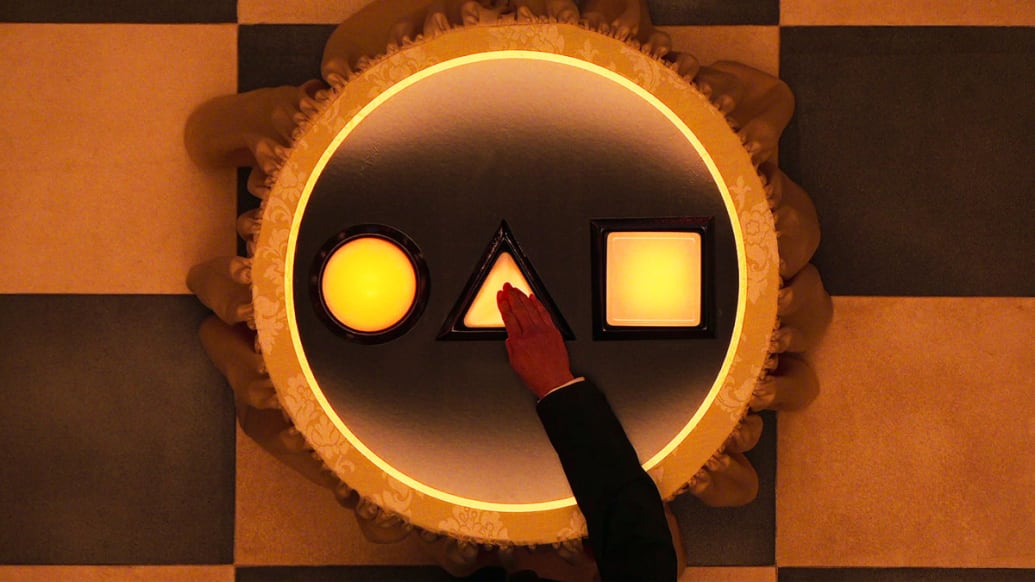(Warning: This post contains spoilers for the , in which the players all eventually share their backstories with one another to contextualize why they want to win. In that game, which involves catfishing, some players lie. And just like in The Circle, The Challenge’s environment breeds mistrust. When Jackie, a deaf competitor, tells her marbles partner that she wants to represent her community by winning, he accuses her of playing the “sympathy card.”
It can be easy to ignore these little moments as the endless games and elimination tests stacked up, but when players like Mikie get eliminated, it’s hard not to stop and think about what winning would have meant for them—and what it might mean for anyone else competing on this bizarre game show for money. These participants’ difficult experiences, initially framed as compelling backstories for their potential victories, do not disappear once they get eliminated and the cameras stop rolling, but just like that, the show encourages viewers to forget about them and train their eyes on the finalists: Who is actually going to win this thing?

The sheer scale of Squid Game: The Challenge is part of what made it so easy to forget about the individuals playing and instead focus on the dizzying race for the prize. Its player pool was the largest in TV history, as was its ultimate cash prize. (Maybe they’ll even up the ante with the newly confirmed Season 2.) But that money didn’t just fall out of the sky into the show’s giant piggy bank; it came from a company that laid off hundreds of workers just last year when its stock was in freefall. The Challenge came from an industry that routinely exploits its workers (especially the most vulnerable) for the benefit of a few wealthy executives. It came from a platform that will cancel thoughtful shows like The Babysitter’s Club and Gentefied and keep churning out more seasons of Is It Cake? as it continues to raise subscription prices.
In the original Squid Game, protagonist Gi-hun’s memory coils around a deadly auto workers’ strike that kept him away from his wife while she was giving birth; there, we learn, a man died in front of his eyes. The strike began, Gi-hun recalls, after the company tried to fire their entire workforce. “They ruined the company,” he said of its leaders, “and held us responsible.”
This year, Hollywood froze to a halt as two major unions staged their own walkouts. The WGA and SAG-AFTRA both centered their strikes around a simple message: Rich company heads are hoarding profits while the actual workers who create the media we consume get the short end of the stick. As someone who routinely covers labor in Hollywood, it became difficult to watch The Challenge churn through hopeful contestants without thinking about the exploitation inherent to the industry that produced it.
As addictive as the show might be, there’s something a little absurd about the way Squid Game: The Challenge played with the aesthetics of the original Squid Game at the expense of that show’s meaning. Then again, this show was never going to engage with the original’s grim perspective on capitalism and voyeurism; that call might just be coming from inside the house.
Last year, Love Is Blind Season 2 participant Jeremy Hartwell sued Netflix and the show’s producer, Kinetic Content, to call out the show’s allegedly “inhumane working conditions.” (Kinetic has denied the allegations, as has the show’s creator, Chris Coelen.) And this fall, Deadline reported that two Squid Game: The Challenge participants were threatening to sue Netflix and the show’s producers for the hypothermia and nerve damage they allegedly suffered while filming the show’s game of “Red Light, Green Light.” (As the trade reported in February, Netflix confirmed that three players had received medical attention during the game. ) “No lawsuit has been filed by any of the Squid Game contestants,” the streamer told Deadline in response to the reported legal threats. “We take the welfare of our contestants extremely seriously.”

Given its provenance, it should come as no surprise that The Challenge reflected the same values its inspiration detested right back at us, like a ridiculously entertaining funhouse mirror. In Squid Game, we watched as gang members force hopeless fictional debtors to sign away their organs to sell to wealthy patients on the black market; in The Challenge, we watched real people compete in televised children’s games to pay for medical procedures our own healthcare system won’t fund. The Challenge was richly produced but intellectually bankrupt, a testament to the state of our media landscape: Everything is “content” to be reproduced, repackaged, and resold. The show’s chief accomplishment is that it exemplified all at once what makes reality television so compelling and also so tasteless—the kind of programming that turns us all into masked VIPs, gathering together to watch others squirm for entertainment, because we apparently cannot think of anything better to do.









